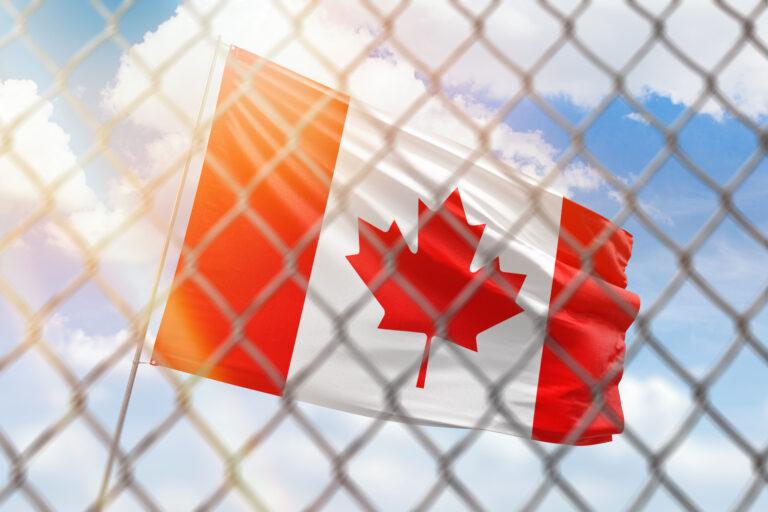Canada has taken second place for the title of the best country in the world, according to the 2023 U.S. News & World Best Countries Ranking.
While it had made first place in 2021, Canada slipped to third place the next year. Therefore, this marks a come-back for Canada on the annual analysis.
In the ranking for this year, Switzerland retained its top spot on the list for the second year in a row (and sixth year overall), and Canada, Sweden, Australia, and the United States constituted the second, third, fourth, and fifth spots respectively.
With 16 spots on the ranking, European countries made up the majority of the top 25 for this year. Among the leading nations, Germany witnessed the largest fall since 2022 (sliding down five spots), while Australia and New Zealand went up by three spots each for the largest year-on-year increase on the list.
The UAE was the only Middle Eastern country in top 25, while Japan, Singapore, China, and South Korea were the leading representatives from Asia.
Read More Canada Immigration News
Canada’s PGWP Break For International Students Extended To December 2023
Manitoba PNP: Province Issues 288 Canada Immigration Invitations In Region-Specific Draw
Immigrate To Canada As A Construction Electrician: All You Need To Know
The Best Countries Ranking is a global metric that – in its eighth year – seeks to “examine a nation’s worth beyond hard metrics.”
It focuses on how global perceptions define countries in terms of various qualitative characteristics, which resultantly have the potential to affect national economies by driving trade, travel, and investment.
The study and model used to score and rank countries were developed – in consultation with U.S. News and World Report – by global marketing and communications services company WPP and its proprietary BAV brand analytics tool, and by Wharton School of the University of Pennsylvania – especially professor David Reibstein.
73 attributes that can be used to describe a country and that are also relevant to the success of a modern nation were identified. These attributes – along with the 87 nations featured on the list – were then presented in a survey to more than 17,000 people from across the world from March 17 to June 12.
Participants were made to assess whether they associated a given attribute with a nation.
Each country was scored on each of the 73 attributes based on a collection of individual survey responses; the more a nation was perceived to exemplify a trait in relation to the average, the higher its attribute score was, and vice versa.
Scores were then transformed into a scale to be compared across the board.
The ten thematic subrankings into which attributes were grouped were:
1. Adventure
2. Agility
3. Cultural Influence
4. Entrepreneurship
5. Heritage
6. Movers
7. Open for Business
8. Power
9. Quality of Life
10. Social Purpose
Subranking scores for each country were determined by averaging the scores that country received in each attribute comprising that subranking.
Canada was ranked second for Agility (with a score of 94.1), third for Quality of Life (92.7), fourth for Social Purpose (93.4), thirteenth for Power (41.9), twentieth for Adventure (54.5), eleventh for Open for Business (80.1), fifty-seventh for Movers (17.8), twenty-eight for Heritage (41.6), fifth for Entrepreneurship (84.2), and fifteenth for Cultural Influence (55.0).
Its relatively low rank on the Movers metric could be associated with rather disappointing survey rankings on various attributes such as distinctiveness, dynamicity, uniqueness, and differentness.
Canada’s overall score, however, was still 99.3, showcasing positive perceptions of its various other attributes. For example, the report gave special credit to the country’s multiculturalism, its transparent system of government, safety, and political stability.
Family friendliness also received an exceptionally high score of 98.5, highlighting the country as a hot-spot for couples looking to start a family or those with young children.
Watch video:
“Canada is a high-tech industrial society with a high standard of living. Trade agreements in the 1980s and 1990s dramatically bolstered trade with the U.S., and now the two counties are each other’s largest trading partner,” said U.S. News.
“While the service sector is Canada’s biggest economic driver, the country is a significant exporter of energy, food and minerals. Canada ranks third in the world in proven oil reserves and is the world’s fourth-largest oil producer.”
The rankings for the top 10 best countries are as follows:
1. Switzerland
2. Canada
3. Sweden
4. Australia
5. United States
6. Japan
7. Germany
8. New Zealand
9. United Kingdom



